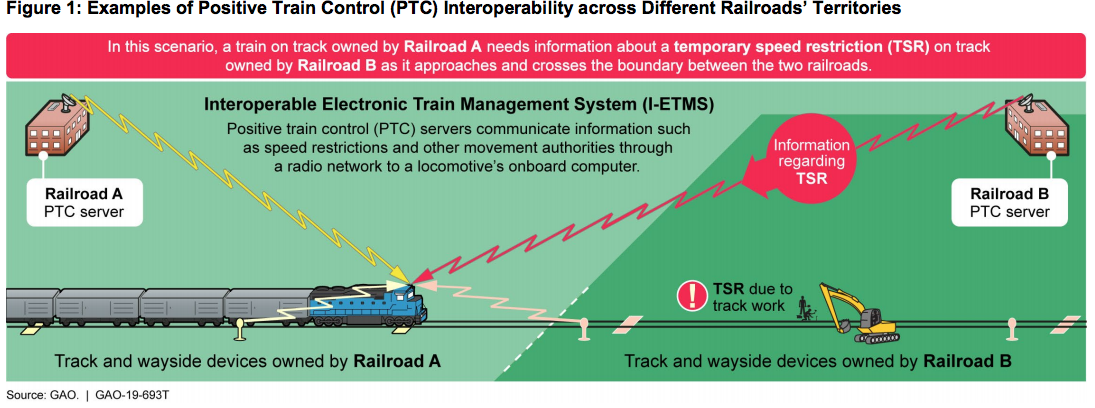August 1, 2019
The Senate Committee on Commerce, Science, and Transportation convened for a hearing on July 31 regarding the current status of positive train control (PTC) implementation and next steps. In this hearing, witnesses did little to instill confidence that railroads and commuter rail agencies will meet the December 2020 deadline for PTC implementation which was delayed by Congress from its initial 2018 deadline (which had in turn been extended by Congress from the original 2015 deadline).
Amid many questions concerning meeting the 2020 deadline, the Director of Physical Infrastructure for the Government Accountability Office, Susan Fleming, gave a seemingly hopeful response saying that she is “cautiously optimistic” on the matter. Her response did little to appease the committee chairman, Roger Wicker (R-MS), who responded saying, “…it sounds like there are going to be some disappointments at the end of 2020.”
Achieving system interoperability presents the most significant challenge in the implementation process according to the Federal Railroad Administration (FRA) Administrator, Ronald Batory. Although railroads agreed to standardize their PTC systems by using interoperable electronic train management systems (IETMS), Batory claimed that “…there was solicitation of the FRA to agree to alternate systems,” from commuter rail agencies.

In short, allowing multiple PTC systems created several obstacles to viable interoperability. Although reports indicate that 87 percent of railroad lines subject to the PTC mandate have enabled PTC, Fleming states that only 17 percent are on interoperable systems and 31 percent are in the early stages of interoperability testing. Batory also stated that, in hindsight, allowing for alternate systems “…was a leadership error in the commuter agency arena.”
BNSF Railway was well ahead of schedule on PTC implementation according to Assistant Vice President of Network Control Systems, Chris Matthews, who reported that all 88 of their subdivisions, under federal mandate, currently operates with PTC systems – as well as 9 non-mandated subdivisions.
Focusing on commuter rail, the committee members hailed Metra and its CEO, Jim Derwinski, as a model for the industry. Batory praised Metra for choosing to standardize their commuter rail PTC systems alongside freight railroads as they were one of the few organizations to do so.
Praises aside, the outlook of the hearing seemed bleak. The participants agreed that many PTC suppliers face heavy strain in trying to keep up with the demand for PTC systems and that funding challenges have led to compressed schedules to meet the 2020 deadline.

Vice President of Strategy and Growth for Wabtec Corporation, Robert Bourg, highlighted issues with increasing insurance rates that railroads are forced to pay, stating that high costs proved difficult to plan around and said that costs strain company funds. Jim Derwinski advised that Congress consider longer funding periods to better enable long term planning, for both PTC-related projects and future projects as well.
Members of the panel ensured the committee that they are doing their utmost to speed up PTC implementation and meet the mandated deadline, but the challenges ahead loom large. Ronald Batory made it clear that the FRA plans to enforce maximum civil penalties on any organization that fails to complete implementation on time.





